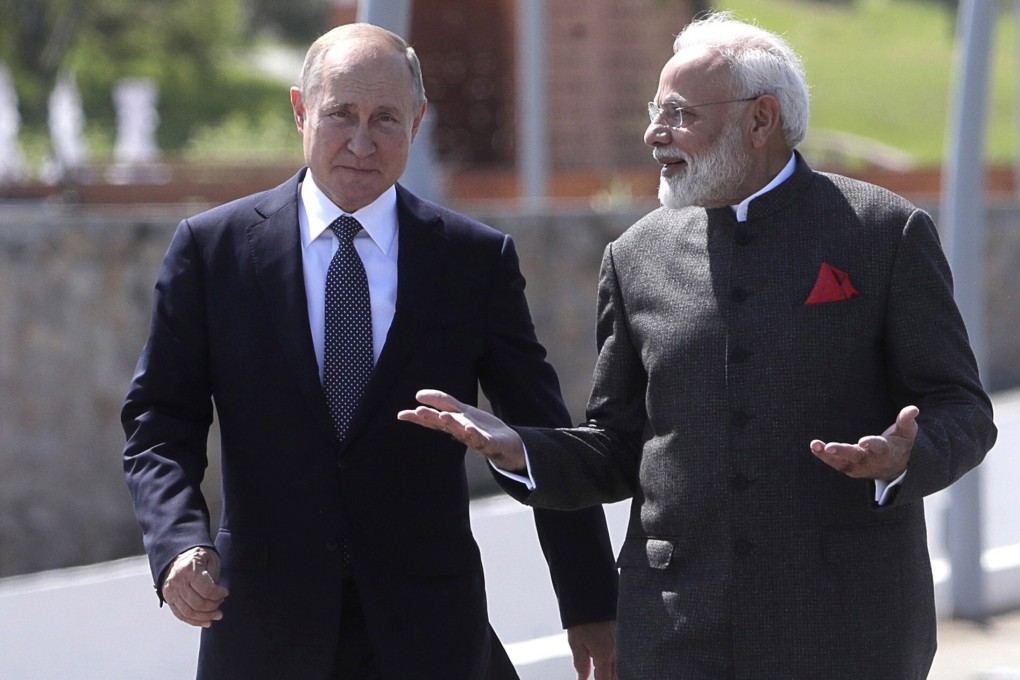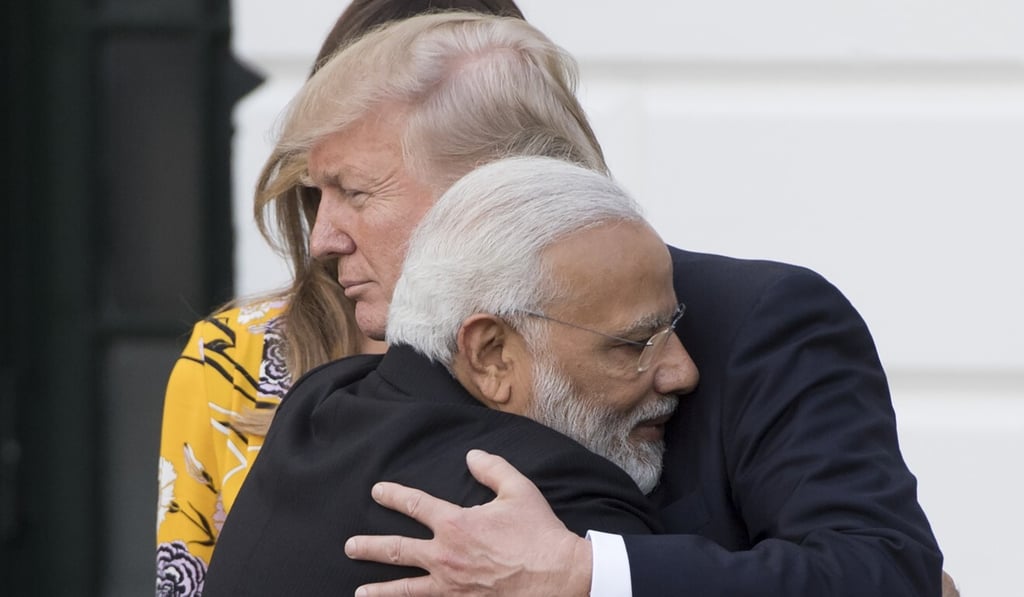Advertisement
As China-India tensions rise, can New Delhi rely on Russia as a defence partner?
- For decades India has been able to call on Moscow for support, but analysts are now questioning the wisdom of this relationship amid growing Sino-Russian ties
- Some have said it would make more sense for Delhi to align itself more closely with the US, which has publicly avowed support for its South Asian ally
Reading Time:5 minutes
Why you can trust SCMP

India’s approval of a 181.48 billion rupee (US$2.4 billion) defence deal with Russia last week has sparked discussion in policy circles over the wisdom of New Delhi’s dependence on Moscow amid tensions with China in the wake of their Himalayan border dispute.
A key concern is whether Russia will remain a reliable ally given its deepening ties with China – Moscow’s top trading partner. But analysts believe that Delhi will have to continue building on its historic Russian relations, even as it grows closer to the United States.
“China provides a market for Russia, especially when it comes to things like natural gas, that it is not able to sell in the West because of the sanctions,” said Sanjay Kumar Pandey, a professor who specialises in Russian Foreign Policy at the Jawaharlal Nehru University in Delhi.
Advertisement
A second point analysts have raised is whether it would be more prudent for Delhi to align itself with the US, which has publicly avowed its support for India in the ongoing dispute.

Advertisement
Political analyst Rajeshwari Rajagopalan explained there was still scepticism in some Indian diplomatic quarters towards Washington because of historical friction between the two during the Cold War years, when India was perceived to be close to Russia while the US backed India’s rival Pakistan on strategic matters.
“Hence, many believe that India must not put all its eggs in one basket, rather continue to follow the middle-path by pushing for engagement with both Russia as well as the United States,” said Rajagopalan, a distinguished fellow and head of the Nuclear and Space Policy Initiative at the Observer Research Foundation in Delhi.
Advertisement
Select Voice
Choose your listening speed
Get through articles 2x faster
1.25x
250 WPM
Slow
Average
Fast
1.25x